Imagine becoming a writer by putting your own creative process at the center, rather than the poem or story, novel or essay. Imagine studying writing as a journey of discovery to find your own voice, your own images, characters, and stories, your own literary forms. Imagine practicing a meditation technique to dive into and expand your deepest creative intelligence on a daily basis.
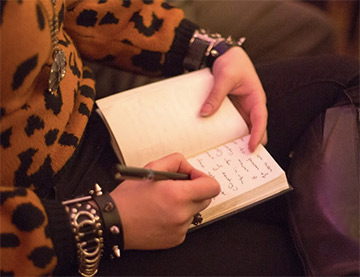
The MIU M.F.A. in Creative Writing centers on your creative process
Imagine thriving in a supportive, inspiring community of writers, poets, and teachers who spark and sustain you on this path of manifesting your vision. Imagine the successful completion of your novel, memoir, collection of poems or short stories, or book of creative nonfiction and submitting it for publication.
You’ll find all this in the M.F.A. in Creative Writing at Maharishi International University (MIU). And if moving to Fairfield, Iowa, isn’t an option, the low-residency program allows you to pursue your writing dreams without uprooting your life.
The program combines on-campus retreats with close personal mentorships and distance learning to provide writing workshops, literature classes, and a literary community, while you produce a book-length manuscript.
“If you or anyone you know wants to dive into creative writing and periodically drop in on a fascinating, artsy little meditation town in Iowa, check out this unique low-residency M.F.A. in Creative Writing!” says Jennie Rothenberg Gritz, Senior Editor at Smithsonian Magazine and creative nonfiction mentor in the M.F.A.
The MIU M.F.A. in Creative Writing is now accepting applications for Fall 2020 ►
“If you or anyone you know wants to dive into creative writing and periodically drop in on a fascinating, artsy little meditation town in Iowa, check out this unique low-residency M.F.A. in Creative Writing!” —Jennie Rothenberg Gritz, Senior Editor, Smithsonian Magazine
Writing as Discovery
“Our program starts with your vision and creative process as a poet/writer,” says poet Nynke Passi, director of the M.F.A. program and associate professor and founding faculty of MIU’s creative writing programs. (She is pictured on the right in the banner photo above, with poet Leah Waller, M.F.A., MIU assistant faculty.)
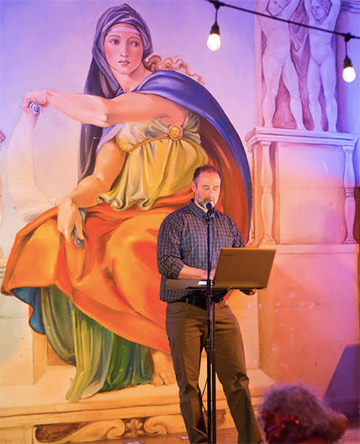
Poet Craig Deninger, assistant faculty in creative writing, Cafe Paradiso reading by MIU faculty, November 2019, Fairfield
“We, as faculty, offer stimulus, sustenance, and encouragement as you journey into the wilderness of your creative imagination where writing finds its pulse. Our workshops and mentorships nurture the unimaginable so you can say the unsayable. We support you to birth images, metaphors, and stories with power to move, transform, and bring change,” she says.
This approach works. Megann Kammerman, an MIU B.F.A. graduate, has already published a children’s book, Bellow of the Beast (First World Publishing), that she cowrote with her sister, Kristann, who also illustrated it.
“The idea that the writer and their process is more important than the outcome really helped me get over a lot of my block of being perfect,” Megann says. “Being able to figure out my own process of writing has helped me to understand how best to help myself continue writing. Much of the B.F.A. was devoted to analyzing and understanding my process, and that has really benefited me now that I don’t have the structure of class or regular feedback.”
“Our workshops and mentorships nurture the unimaginable so you can say the unsayable.” —Nynke Passi, M.F.A. Program Director
Teaching the Unteachable
The M.F.A. in Creative Writing faculty are accomplished, credentialed working poets and writers who offer creative challenge and nourishment within a safe space for your process. “Our mentorships spur unguarded experimentation with language and craft, pushing you into new approaches that will make your work stand out. We want your education to be a transformational experience—creatively, professionally, and personally,” states the program web page.
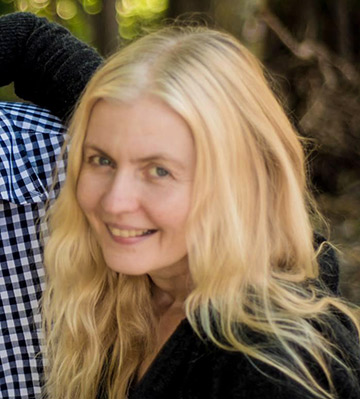
Nynke Passi, Program Director, MIU M.F.A. in Creative Writing (photo by Michael Kreiser)
They are led by M.F.A. program director Nynke Passi, who is a legend among students. “Nynke teaches the unteachable,” say many writers who have worked with her.
“She not only helps each student develop the technical craft of writing, she helps develop their inner muse—their bright spark of creative impulse—as well,” says writer Malinda Gosvig Rees, who graduated from the M.F.A. program at the University of Minnesota after completing her undergraduate studies in the English department at MIU.
“When working with Nynke, I found myself in an unprecedented torrent of creative excitement,” Gosvig Rees shares. “This, coupled with her genuine support and high-caliber constructive feedback, facilitated one of the most prolific periods of my writing life—and certainly the most enjoyable! She creates an absolutely magical, bursting-with-creativity environment for the discovery of writing and brings to the table a sharper eye and more generous feedback than I have ever received from any other writing teacher before or since.”
What did MIU graduate Megann Kammerman love most about her B.F.A. courses? “The space and exercises and support to devote yourself to writing and to becoming a better writer. I managed to create more raw content during the B.F.A. than I have in any other class. The atmosphere that the instructors make within their classes is so amazing for encouraging us to create content and express new ideas,” she says.
Nynke Passi “creates an absolutely magical, bursting-with-creativity environment for the discovery of writing and brings to the table a sharper eye and more generous feedback than I have ever received from any other writing teacher before or since.” —Malinda Gosvig Rees, M.F.A.
A Community to Thrive In
When Kammerman joins the M.F.A. program, she also expects to find “the same thing that I got from the B.F.A.—a chance to develop my writings skills and voice, surrounded by a family of people who are fun and compassionate, and who give constructive feedback that always manages to encourage rather than discourage. I would hope to achieve a new level of depth in my writing, a new understanding of my process and how to manage a creative lifestyle.”
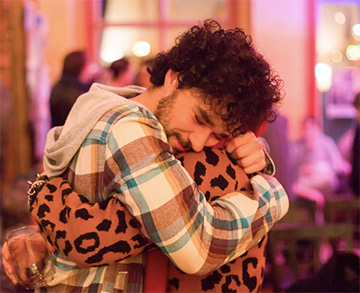
The MIU writing community supports creative discovery
For Tamlin Day, an MIU B.F.A. graduate and a feature writer at iPhone Life Magazine, the creative writing community’s LGBTQIA inclusivity supported his self-discovery. “When I started with Creative Writing at MIU, I didn’t have a good sense of who I was. I knew who I was to other people—sister, nanny, teacher, friend, etc.—but I didn’t have a good beat on my relationship with myself. At MIU, I was encouraged to get in touch with myself,” says Day, who will be joining the first M.F.A. cohort this fall.
“As a writer, you have to get to know the source in order to produce authentic content. Through that process, I uncovered my gender identity as a trans masculine non-binary person. When I came out, my professors and classmates were very supportive, and they encouraged me when I wanted to explore that aspect of myself through my writing. I’m very grateful for my time at MIU, because they didn’t just include me as a diverse student; they brought the diversity out of me,” he says.
“At MIU, I was encouraged to get in touch with myself. As a writer, you have to get to know the source in order to produce authentic content.” —Tamlin Day, B.F.A., Feature Writer, iPhone Life Magazine
“Meditate and Create”SM
What sets the MIU M.F.A. in Creative Writing apart from other programs is the practice of the Transcendental Meditation® technique to enhance the creative imagination. If they don’t already practice TM®, students learn the technique at the start of the program. Their twice-daily meditations settle the mind and body as they experience the dynamic silence of their own consciousness.
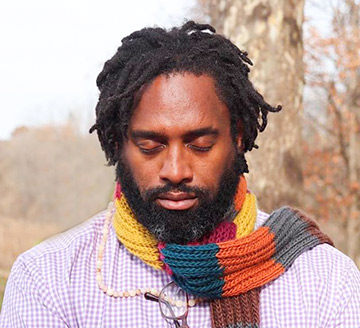
In the MIU M.F.A. in Creative Writing, students enhance their creativity with their practice of the TM technique
“From this deep connection with yourself, creativity flows like a river. Writing becomes play,” says Passi. “It’s easier to problem-solve, leap to surprising, fresh associations, stay in the flow, and adopt a sustainable writing routine. Accessing the most profound layers of yourself fuels your creative process.”
The creative writing faculty and M.F.A. mentors also practice the TM technique, and have spoken about how inseparable it is from their work as writers and poets.
“Creativity arises from the liminal space we experience when the mind is at rest and the perceived world seems alive with all possibilities. My daily practice of Transcendental Meditation is the tool I use to mine that energy and fuel my creative practice,” says novelist Susan Daniels, author of The Genuine Stories (New Rivers Press), winner of the Fairfield University* Book Prize, and fiction/nonfiction mentor in the M.F.A.
M.F.A. poetry mentor Rustin Larson has had his poems published in The New Yorker and literary journals and is the author of The Philosopher Savant (Glass Lyre Press) and other books. He says, “My practice of Transcendental Meditation and my journey through life as a poet began simultaneously. My years as a student at MIU were enchanted, with poetry forming all around me. Places, people, seasons, and time itself were transformed by my experience of the source of thought, and they became the stuff of what I was dreaming into words.”
*Fairfield University is a Jesuit Catholic school in Fairfield, Connecticut.
“From this deep connection with yourself, creativity flows like a river. Writing becomes play.” —Nynke Passi, M.F.A. Program Director
Q&A about the M.F.A.
Writer and artist Maggie Ventsias holds a B.F.A. from the MIU undergraduate program in Creative and Professional Writing and will be joining the M.F.A. in Creative Writing this fall. She is a Certified TM Instructor and currently serves as a Residential Hall Director at MIU. Learn more about the MIU M.F.A. in Creative Writing ►
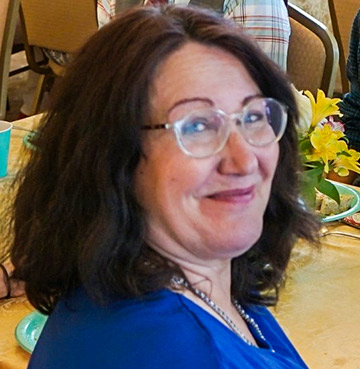
Maggie Ventsias, B.F.A, will be in the M.F.A. in Creative Writing
What do you hope to gain from and achieve with the MIU M.F.A. in Creative Writing?
I see the M.F.A. as an extension and deepening of the B.F.A. I completed in 2018. I look forward to further strengthening my writing skills, with the ultimate goal of submitting my novel/memoir, begun during the B.F.A., to several publishing houses.
What features of the upcoming M.F.A. are you most excited about and drew you to this program?
I like the flexibility of a low-residency program. After five years of Iowa winters, the thought of enjoying both an MIU-quality education and Arizona winters is quite appealing.
What have you loved most about MIU’s creative writing and creative process courses?
What stands out most in my memory is the quality of the program and the superb professors we had for each section of the course, as well as how each block built upon the prior block, producing a cohesive wholeness of knowledge and experience.
How has studying writing with the creative process and the writer at the center, rather than the product, helped you? Is it easier now to create, produce, and see writing as a process of discovery?
Absolutely! I learned early on to give my judgmental mind-monkey a banana to keep it occupied, while I got on with the business of diving into my first draft head on, knowing that revision and rewriting were a natural part of the process.
“I learned early on to give my judgmental mind-monkey a banana to keep it occupied, while I got on with the business of diving into my first draft head on, knowing that revision and rewriting were a natural part of the process.” —Maggie Ventsias, MIU B.F.A.
How did the MIU Consciousness-Based® approach to literature and creativity help your writing while you were working on your B.F.A. projects?
As a B.F.A. graduate, I can say without a doubt that Consciousness-Based education allowed me the space to explore and connect my inner self to my work in a very intimate way. The work was richer for the experience, and I was much more grounded and less stressed by the rigorous standard of education that supported us to do our best work.
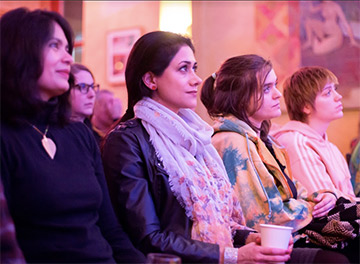
MIU writers and students at the Cafe Paradiso reading, November 2019, Fairfield, Iowa
How have your TM practice and the MIU faculty and literary community contributed to your growth as a writer?
I could easily write a paragraph about each of those three aspects of the program. Succinctly: I would not be who I am today without the many years of the Transcendental Meditation technique I have enjoyed; the MIU faculty are the most knowledgeable, compassionate, encouraging facilitators I have ever had the joy to work with; and our literary community has been my rock and my family as the ever-expanding experience of revealing my soul through the written word has unfolded.
What has been your most transformational experience as a writer at MIU, and how do you hope to grow further in the M.F.A.?
Wow, that’s a tough question because the experience was like a jigsaw puzzle, each piece falling into place to produce a whole experience that can’t really be picked apart without dislodging the anchoring corners. But if I have to pick one aspect, I would have to say it was the workshopping experiences. Learning to be vulnerable enough to bring my work into a group and share it while being willing to get feedback was invaluable. The brilliant, considerate, in-depth feedback I received was priceless. It made me a better writer. Many of our B.F.A. cohort have stayed in touch after graduation, continuing to share work and support one another’s efforts.
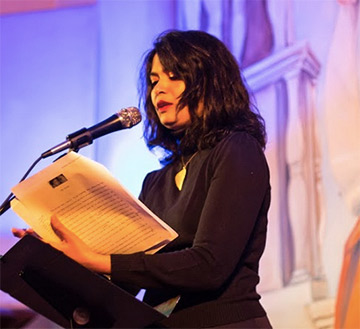
Sasha Kamini Parmasad, poetry/fiction mentor in the M.F.A., Cafe Paradiso reading by MIU faculty, November 2019
How does your MIU experience compare to any other creative writing classes or workshops you’ve taken in your life?
It’s difficult to quantify since MIU is such an all-inclusive environment. Whereas other classes might address one particular aspect of writing, the MIU curriculum excels at weaving a net of personal, academic, and real-world values that creates a cohesive wholeness that I’ve not experienced anywhere else. I’m excited to be part of this next step!
Learn more about the MIU M.F.A. in Creative Writing, now accepting applications for Fall 2020 ►
“The brilliant, considerate, in-depth feedback I received was priceless. It made me a better writer.” —Maggie Ventsias, MIU B.F.A.

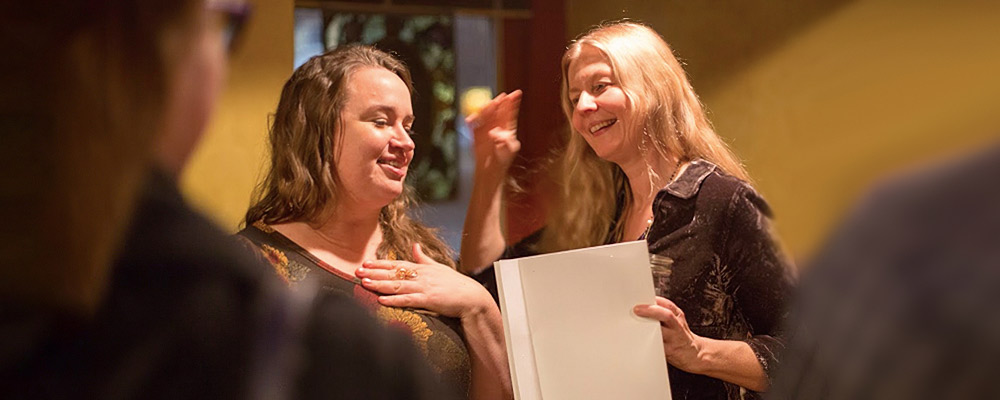
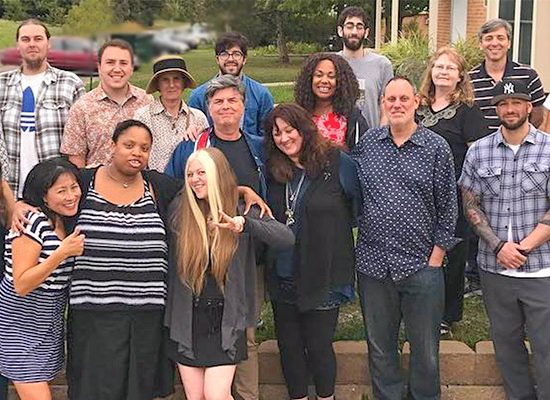
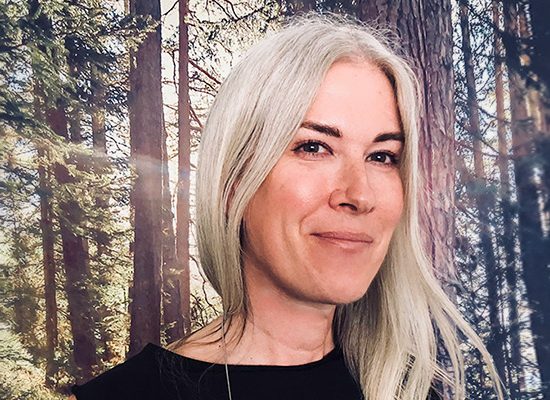
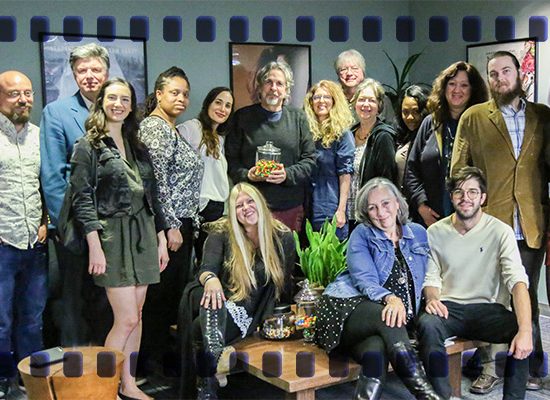
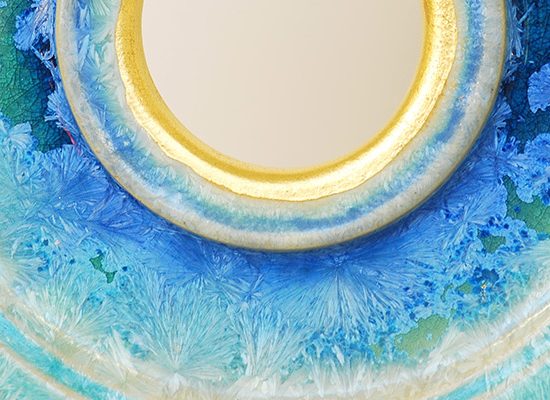
Thank you Harbour for this article, and for your encouragement! You helped me write My Story in the Enjoy TM News last summer, and had encouraged me to think about writing a book about my adventures. I plan to continue my trekking adventures, with the strength I get and need from my TM meditation, of course, and will continue writing my blog while on my treks, and may one day consider writing a book about them?
Ted
Thank you, Ted, it was great working with! and so inspiring to learn and write about this great new M.F.A. program. Definitely keep thinking about writing a book. You’re such a good storyteller, with wonderful material from your treks. Memoir and creative nonfiction is one of the M.F.A. tracks, and producing a book-length manuscript, so perhaps this would a way to do it, with support and guidance? Either way, keep trekking and writing your blog!